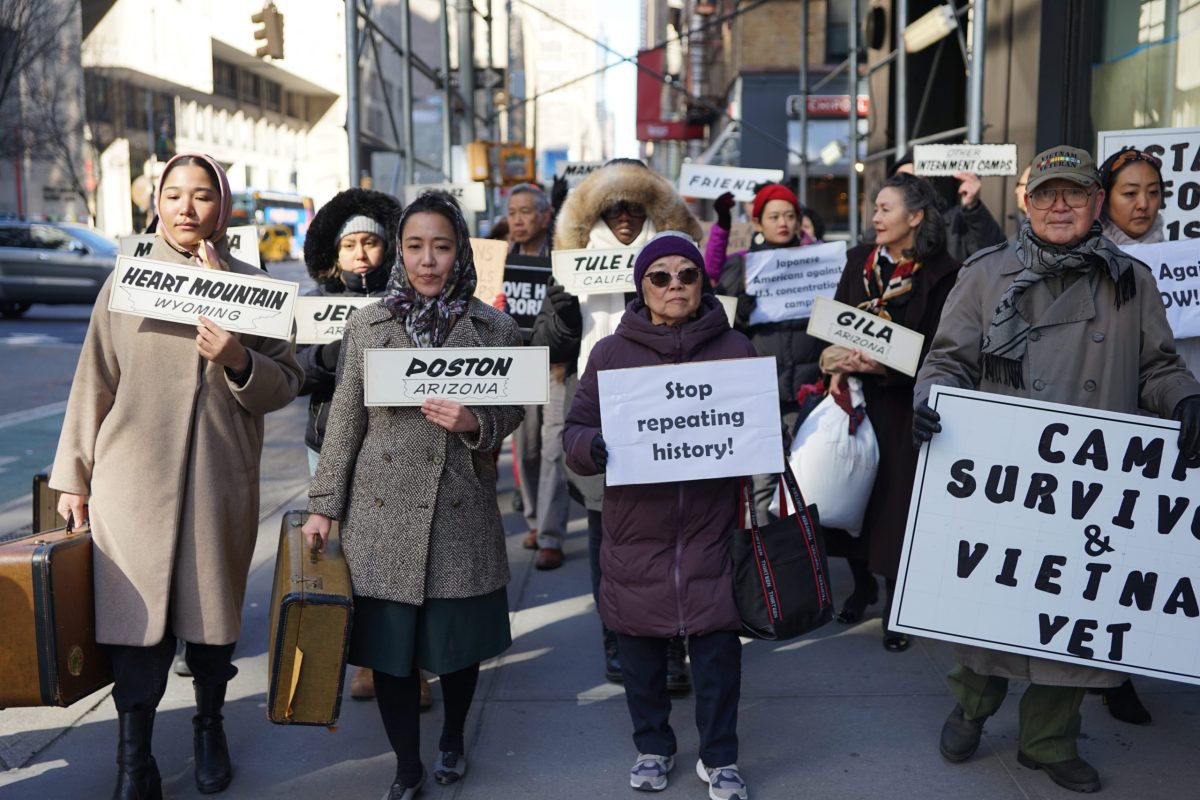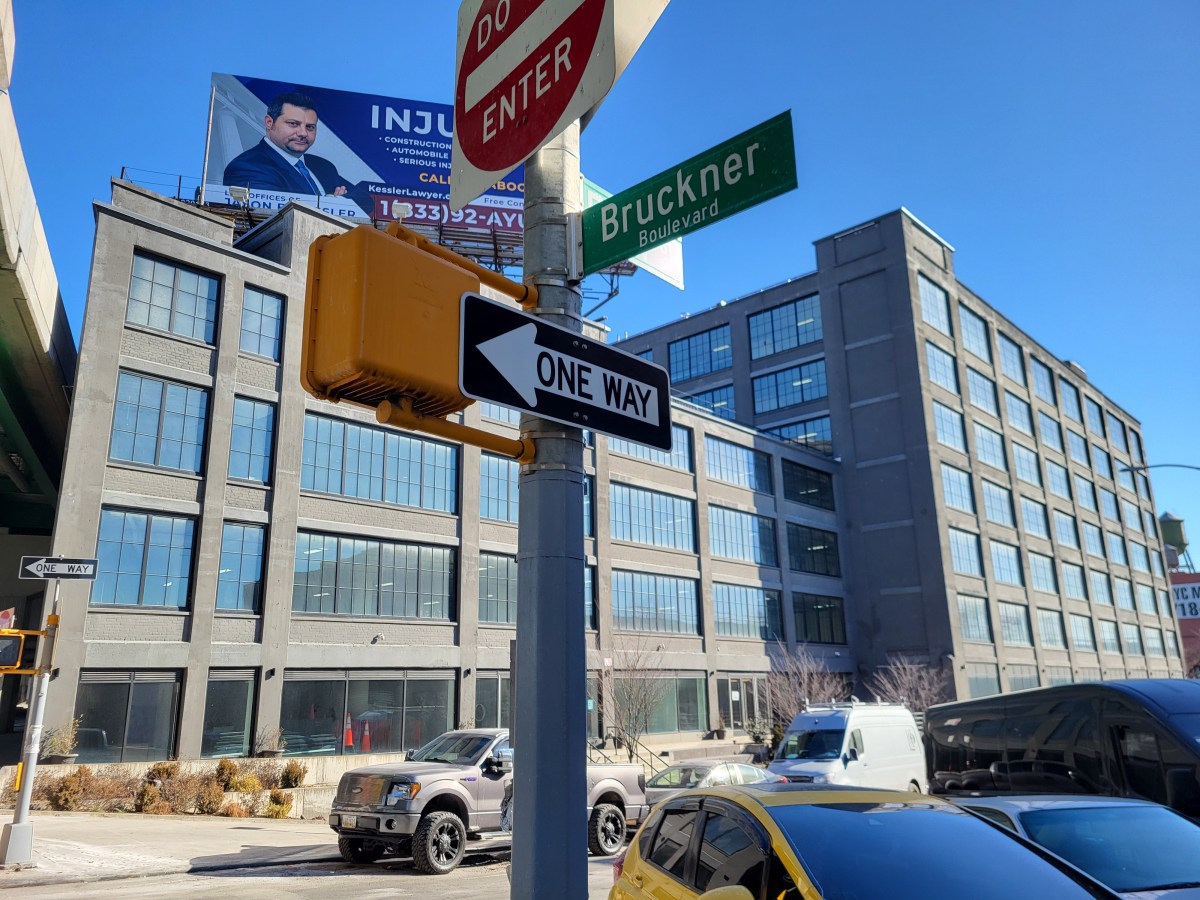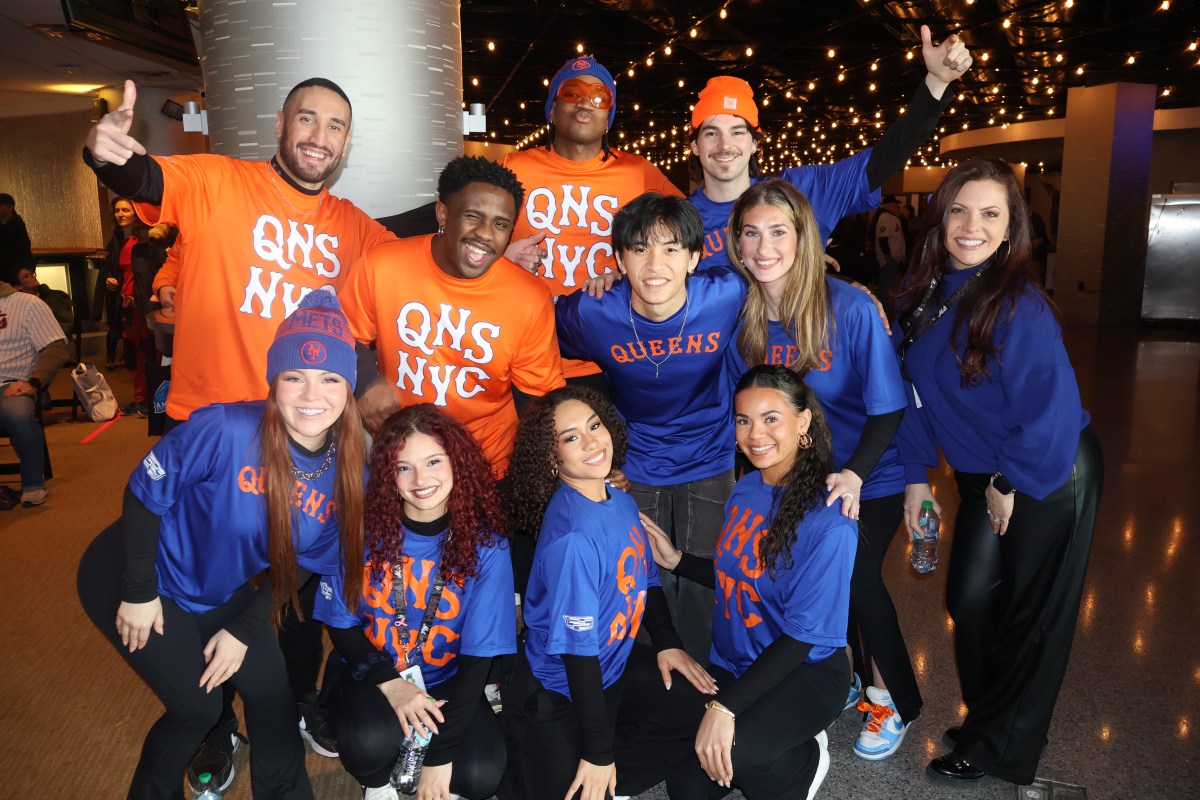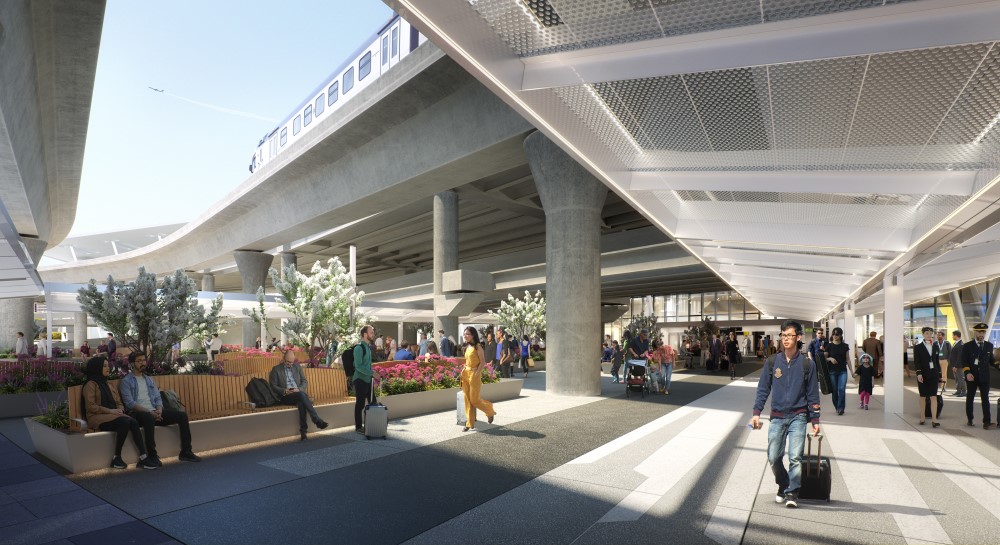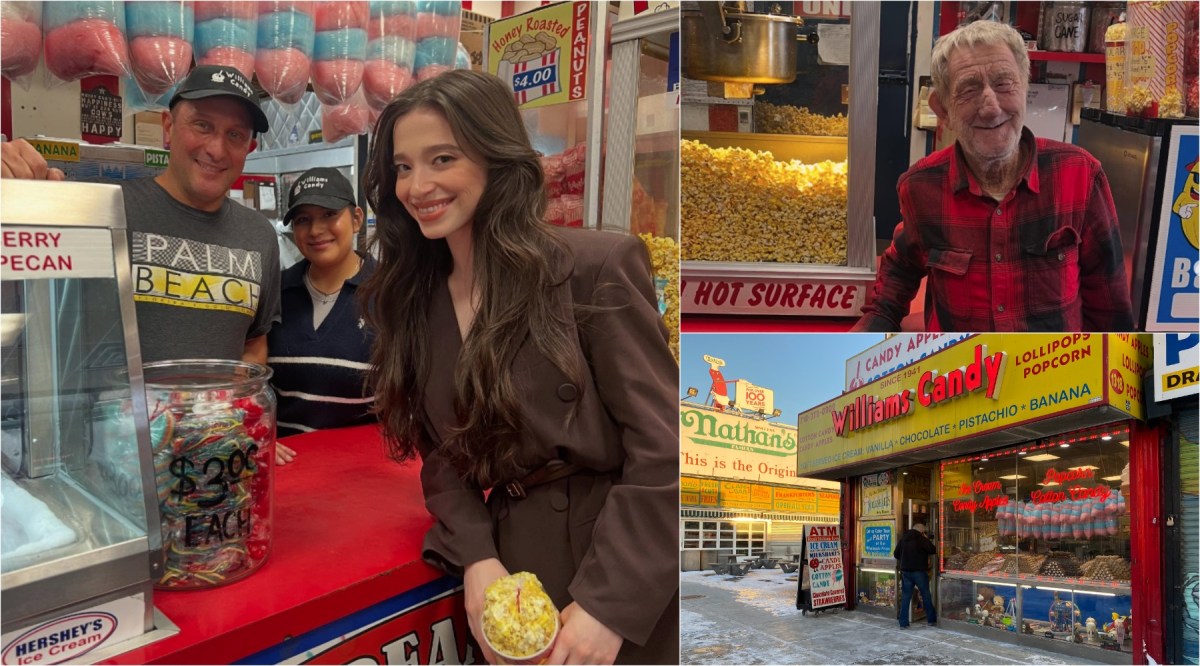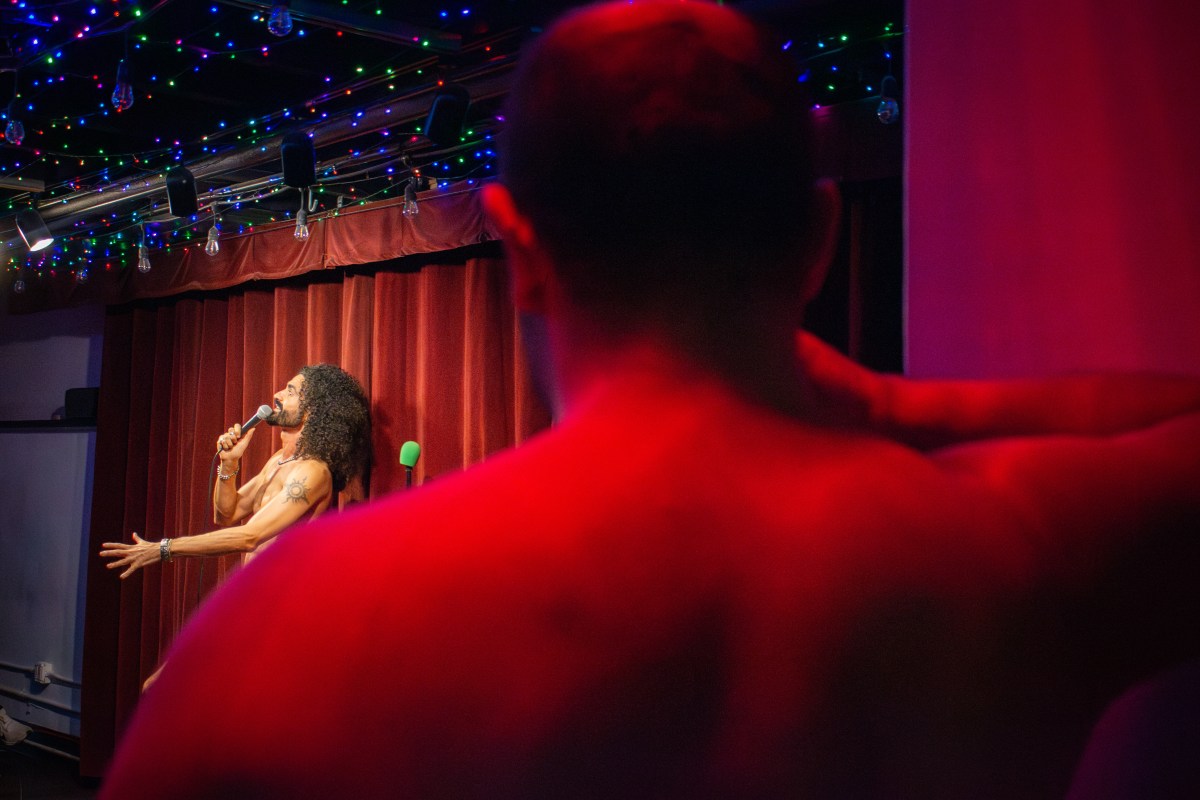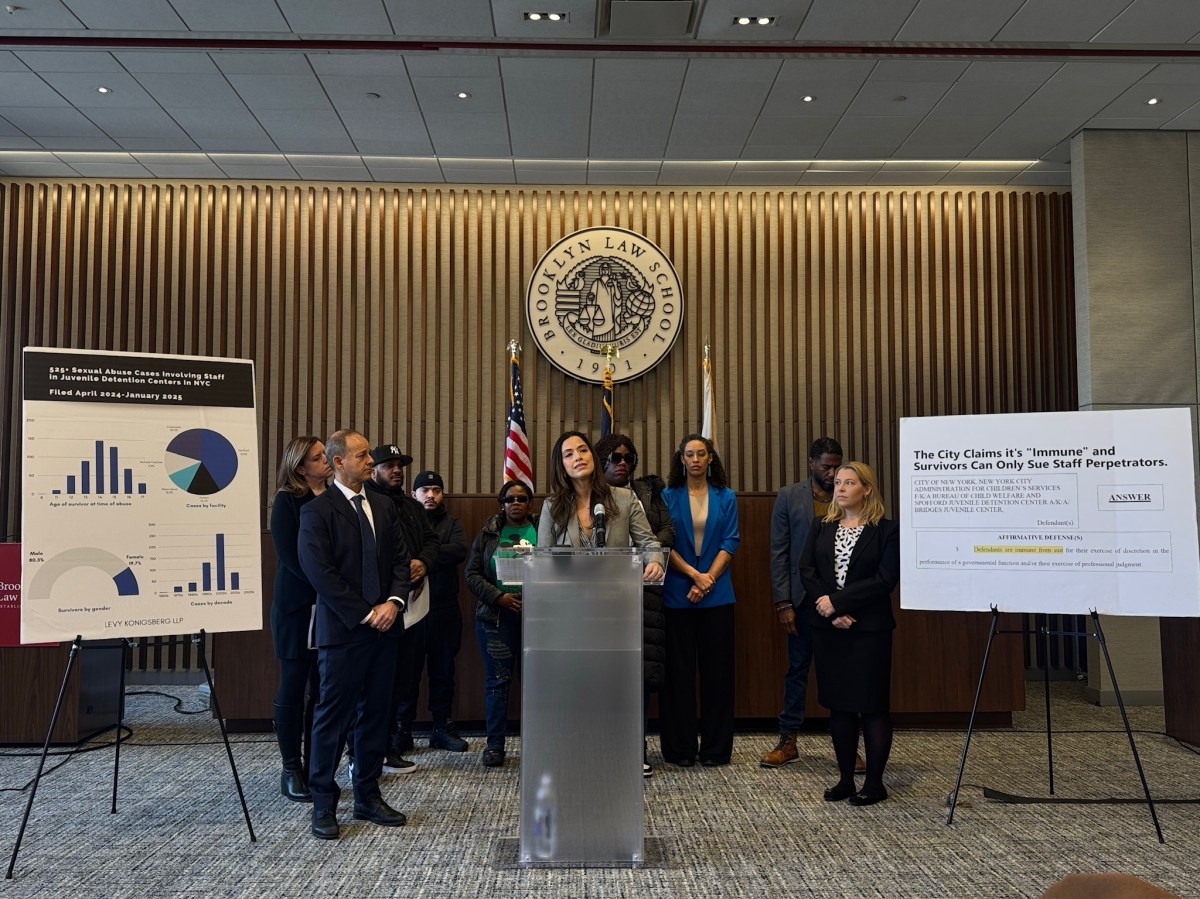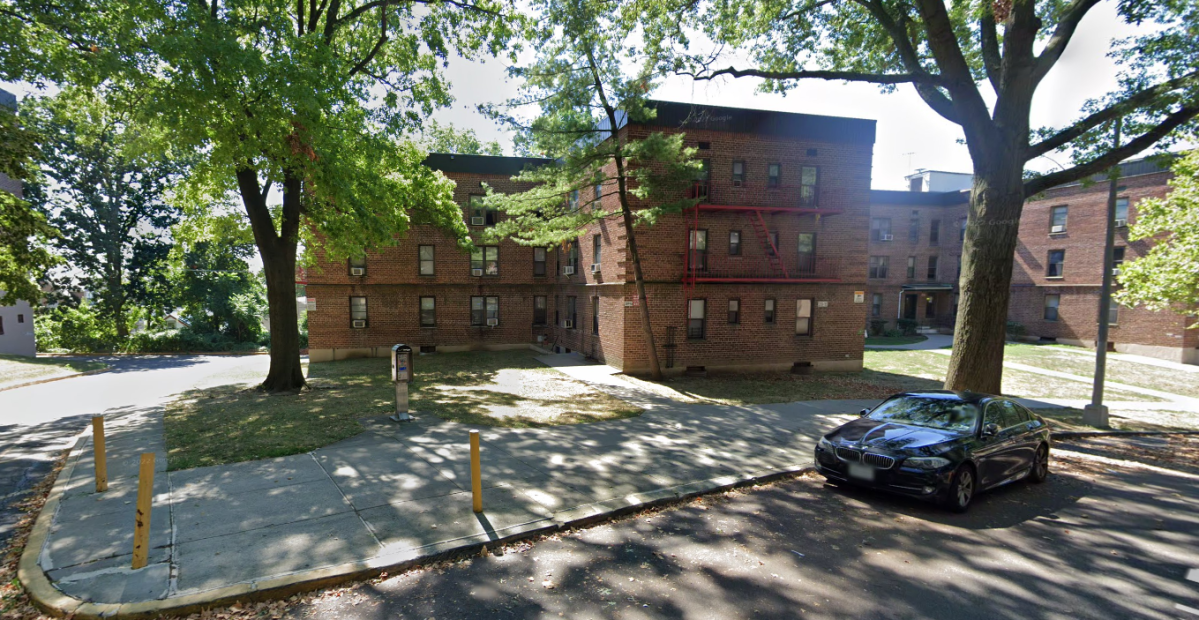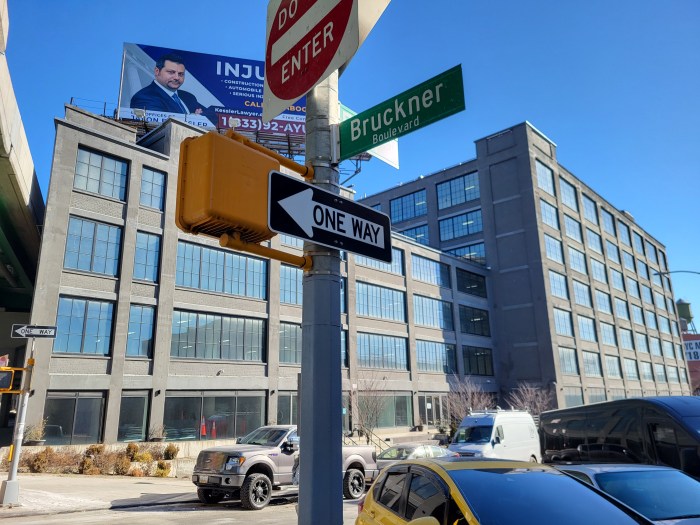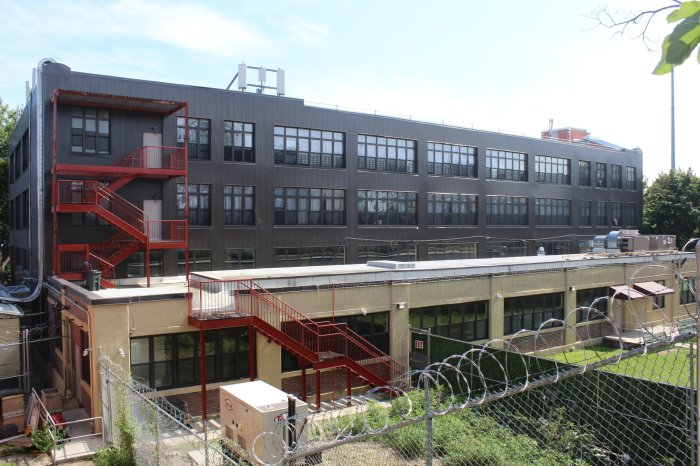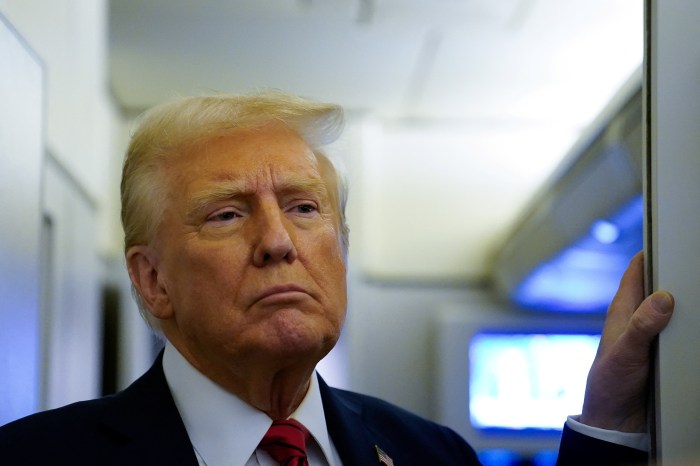By Eddy Martinez
Tourists wearing backpacks passed by Emily Fujikado Akpan, 24, as she stood outside Penn Station around early last Saturday morning. But even though she was bundled up with a scarf and a wool coat with a suitcase sitting next to her on the sidewalk, Akpa was not a tourist waiting to take in the sights.
The 24-year-old Brooklynite was waiting to take part in a silent march to commemorate the mass imprisonment of 120,000 Japanese Americans during World War II. Marchers, like Akpan, carried old suitcases and dressed in 1940s style clothing to act as physical reminders of the interned as they walked to the Japanese United Church at 255 7th Avenue. A woman leading the march rang a bell to grab the attention of passersby.
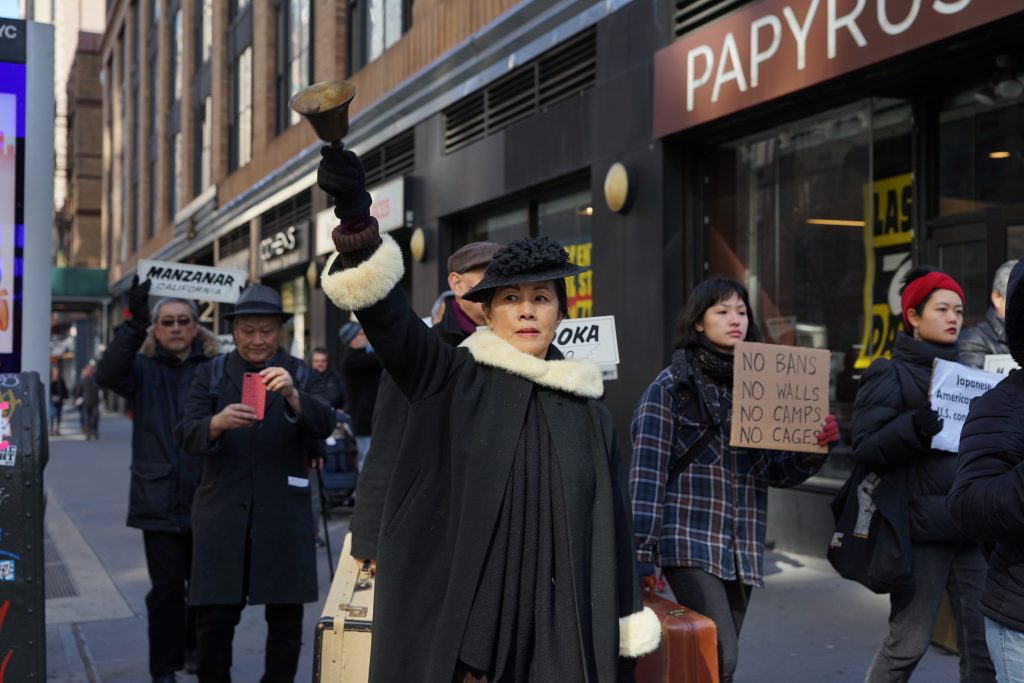
“The memory of that camp to riding the train, with soldiers armed with rifles… in two days, there was no air conditioner, anything,” said Tadashi Tsufura, 90, Woodside, Queens resident and survivor of the internment camp at Gila River in Arizona. “That train ride is something that never leaves my mind.”
Round-ups of Japanese Americans started in 1942, in the wake of the attack on Pearl Harbor. The U.S. government explained that it was based purely on national security but historians now agree that the mass roundups were motivated largely by racism. Internment camps were placed mostly all over the west coast and in the southwest, from Washington to Arizona to Wyoming. Conditions were often austere, with armed guards posted at the entrances. Japanese Americans who tried to leave were shot. They were released from the camps in 1944, as the war turned against Japan. The U.S. government issued a formal apology in the 1980’s. California only recently issued a formal apology.
For these marchers and their supporters, the procession is more than a commemoration, it’s also a reminder that they link their suffering to the modern immigration debate in New York City. At the end of their march, they unfurled a banner which read”Stop Deportation Now!”. They spoke from a painfully similar experience. Once marchers arrived at the church, their mission shifted, it was a day of remembrance but also a day of action.
Marchers then took part in the first New York chapter meeting for Tsuru for Solidarity, a Japanese American activist organization formed last year and opposes the use of immigrant detention centers in the United States.
“We want to remember our history so that the injustice that happened to Japanese Americans never happens again,” she said. Akpan, whose grandmother was incarcerated at Minidoka, grew up in Brooklyn. “I mean growing up in New York City and growing up in a predominantly black and brown community and also being black myself, just like these issues have always been on my mind.” The group had unfurled a banner in front of the church stating, “Stop Deportations.” The event concluded with a potluck in the basement.
Becca Asaki, 33, from Williamsburg in Brooklyn, said it’s important to make connections with other minorities such as Muslim Americans. “I think it’s been a strong core value of us here at the Day of Remembrance committee to really reach out to the Muslim community here in New York to reach out to the immigrant community here in New York.” One of the speakers at the event was the Executive Director of the New York branch of the Council of American Islamic Relations, Afaf Nasher.
“It’s a no brainer when our allies reach out to us. The connection is very clear between what we’re facing… It’s an opportunity for me to educate myself and in doing so empowering myself and empowering my work for the community as well,” Nasher said.
Linda Morris, 30, from Park Slope, is a Japanese American and her activism has helped her open up sometimes painful discussions within her own family. “We’ve started to have those conversations, some are more ready than others to have those conversations. It’s only really been recently where the survivors in my family have felt ready to talk about their experience of being children incarcerated.”
Asaki and Morris went from table to table during the potluck where they got people to sign up for future Tsuru for Solidarity events. It also provided an opportunity for Japanese Americans in New York City to connect. “What I think is amazing about spaces like this is that we get to kind of all come together and reclaim each other as a community, right, like I am of Japanese ancestry. So our recent immigrants and we may have different histories but we have a shared kind of bond.”



